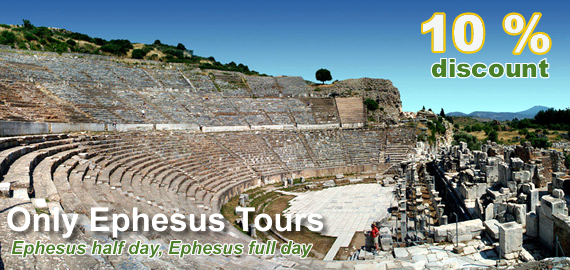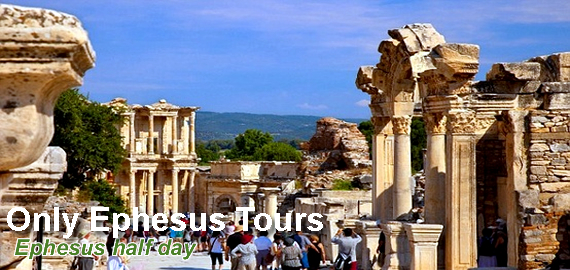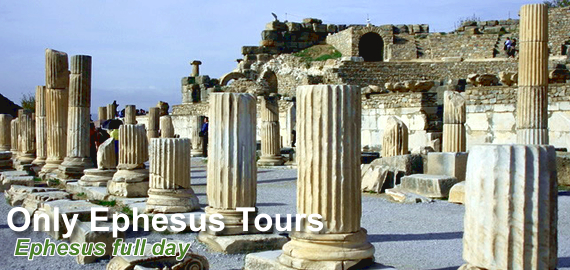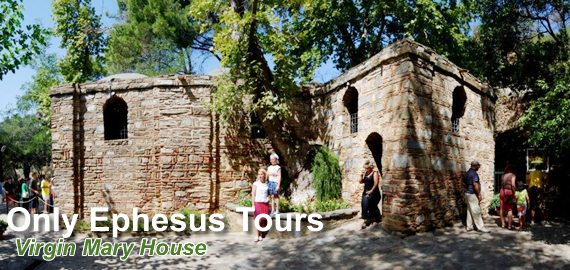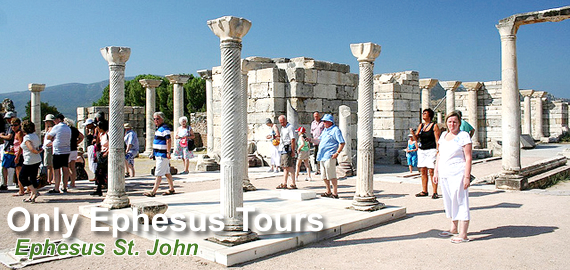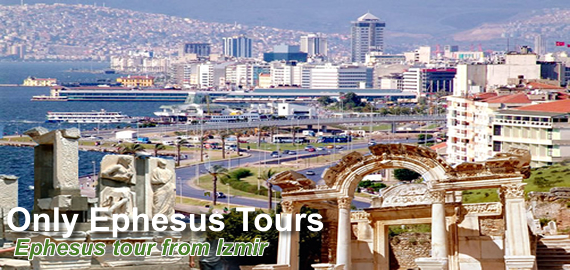Ephesus History, Ephesus Information, Ancient Ephesus
 Ephesus History, Ephesus Information, Ancient Ephesus
Ephesus History, Ephesus Information, Ancient Ephesus
Ephesus History, About Ephesus, Ancient Ephesus, Ephesus Tours
Ephesus History
In the year of 10 BC, Androclos, the son of King of Athens-Kodros,
was searching a location for establishing a site. Androclos
belonged to Akhas, was running from the Dor invasion in Greece.
He was leading one of the migration convoys. It was predicted by an
Apollon oracle that a fish and a boar would show the location of the
new settlement. Days later, parallel to the oracle’s prediction,
while frying, a fish fell down from the pan, irritating a hiding boar
behind the bushes. The feared boar escaped immediately. Androclos
followed the boar and established the city of Ephesus, where he had
killed the boar. When Androclos died in the wars with Carians, a
mausoleum was built to the memory of the first king of Ephesus.
The mausoleum is considered to be placed around "The Gate of Magnesia".
Ephesus was ruled by the Lydian king, Kreisos, in the mid 6BC.
The city reached the "Golden Age" and became a good model to the
Antic World in culture and art, as well. As the detailed
excavations have not completed yet, apart from the Artemis, the
remains of that age haven’t been revealed.
Later, Ephesus was dominated by Persians. As Ephesians did
not join the "Ionian Rebellion" against Persians, the city was saved
from destruction. The rebellion resulted in the loss of Persian.
Alexander the Great won Persians and the Ionian cities got their
independence in the year of 334. Ephesus was in great prosperity during
the times of Alexander the Great Until the arrival of Alexander the
Great, Ephesus was consisted of two governing systems, democratic
and oligarchic. But the oligarchic system was violated with the coming
of a new ruler, and a rebellion existed in Ephesus.
The Temple of Artemis was fired and destroyed by the supporters
of oligarchy in 356BC.But it is believed that a madman known as
Herostratus set fire to the temple in order to make his name
immortal on the same night in Macedonia Alexander the Great was
born. As the temple became unusable, Alexander the Great proposed
for repairing. But the Ephesians delicately refused for the reason that
"A God can not built a temple for another God.".So Alexander who was
very proud of himself as a God, gave some special privileges to the
city. An Ephesian architect, Dinocrates restored the
Temple of Artemis.
After the death of Alexander the Great, Ephesus was ruled by the
general of him, Lysimakhos, in 287 BC. Lysimakhos decided to
change the prior location of Ephesus to further west, due to the
destruction of the port by the alluviums, and the inhabitants were
forced to settle in the new place named "Arsinoeina", the name of
Lysimakhos’ wife. The city was surrounded by wide stone walls in
10 meters height and 9 meters length. And, "Arsinoeina" was
changed into "Ephesus" again, to be forgotten eternally.
THE MOST CREATIVE AND ECONOMICAL EPHESUS TOUR FOR YOU!
We provide you with the air conditioned vehicle with the driver and
the licensed professional English speaking guide. You can draw up the
program and determine the sights you wish to visit; our guide and the
private vehicle with the driver will be at your disposal.
This kind of Ephesus tour is for those who is short of time or just have
special wishes about what to visit around Kusadasi and Ephesus.


